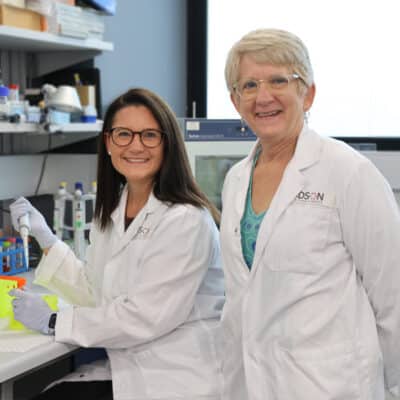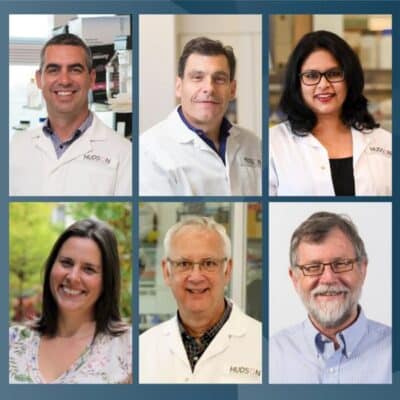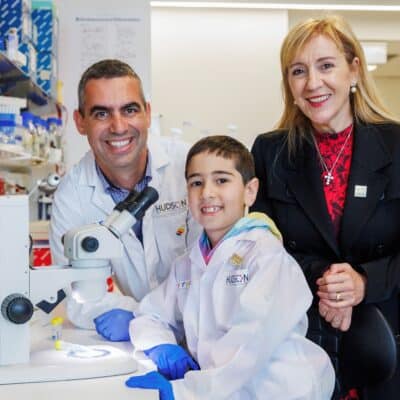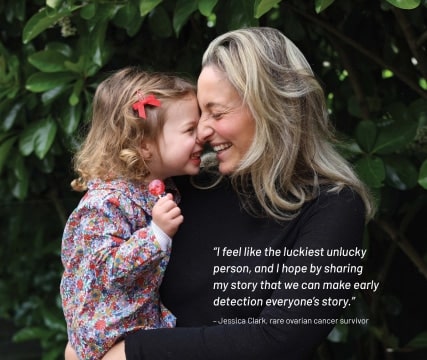Male infertility expert joins Hudson Institute
By Hudson Institute communications
Dr Robin Hobbs has joined Hudson Institute as Group Head, Germline Stem Cell Biology. We welcome him and his team, including postdoctoral scientists Dr Ai-Leen Chan and Dr Julien Legrand, and PhD student Mai La.
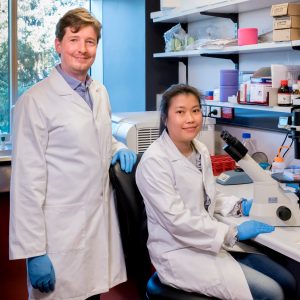
The team join the Institute from the Australian Regenerative Medicine Institute at Monash University, where Dr Hobbs established the group in 2012.
Dr Hobb’s research focuses on a cell type which is a precursor to mature sperm, spermatogonial stem cells, or SSCs. His aim is to provide insight into potential causes of male infertility.
Dr Hobbs says male infertility is surprisingly common. Often, the disrupted formation, function or maintenance of SSCs is thought to be involved.
“Continual production of sperm in adults is dependent on a population of SSCs within the testis,” Dr Hobbs says.
“SSCs can self-renew to maintain their numbers and produce differentiating germ cells which ultimately, form mature sperm. We study the molecular mechanisms that regulate SSC activity and the balance between self-renewal and differentiation.”
“I’m looking forward to working with so many groups focused on reproductive biology,” Dr Hobbs says. “I am also excited to establish collaborative projects with excellent labs at Hudson Institute, and for opportunities to take our research into new directions.”
Dr Hobbs undertook his postdoctoral studies at the Memorial Sloan Kettering Cancer Center in New York City, and the Beth Israel Deaconess Medical Center, Boston. Although focused on cancer research, he became interested in SSC biology and fertility from studies of the PLZF gene, which is disrupted in leukaemia. “We unexpectedly found that PLZF was expressed in SSCs and was essential for SSC self-renewal. PLZF was one of the first genes identified to be required for SSC function and is now routinely used as a marker of these cells.”
Male infertility facts
- About 1 in 20 men has a low sperm count
- For one in five infertile couples, the diagnosis is with the male partner
- Australia is among the highest users per capita of IVF.
Contact us
Hudson Institute communications
t: + 61 3 8572 2761
e: communications@hudson.org.au
About Hudson Institute
Hudson Institute’ s research programs deliver in five areas of medical need – inflammation, cancer, reproductive health, newborn health, and hormones and health. More
Hudson News
Get the inside view on discoveries and patient stories
“Thank you Hudson Institute researchers. Your work brings such hope to all women with ovarian cancer knowing that potentially women in the future won't have to go through what we have!”


